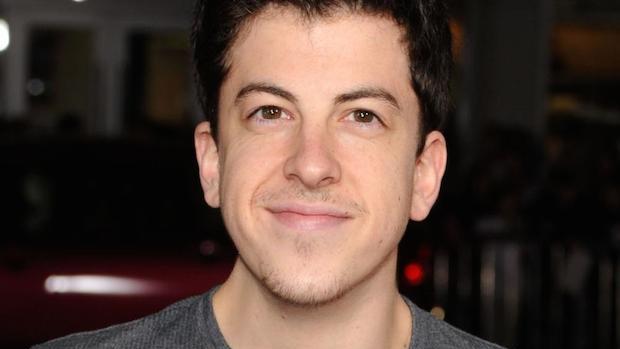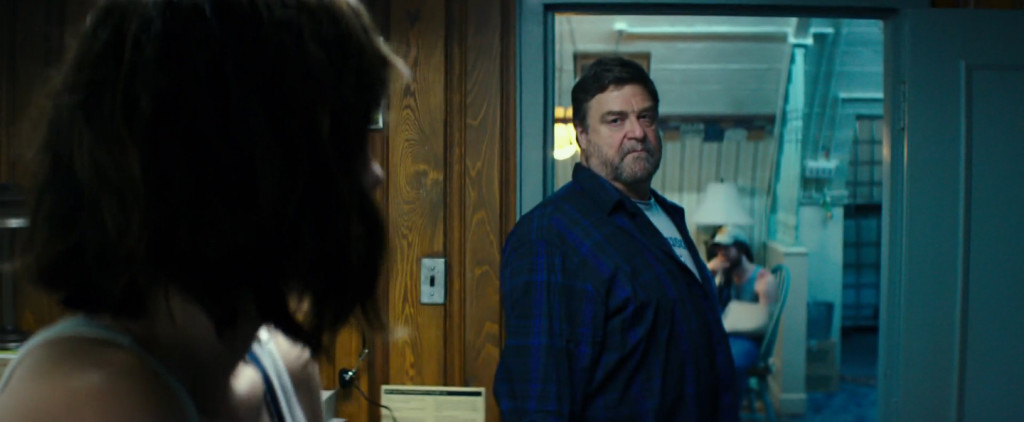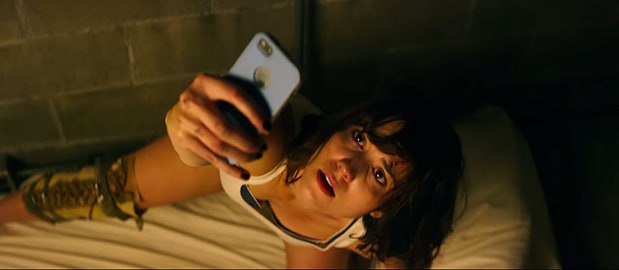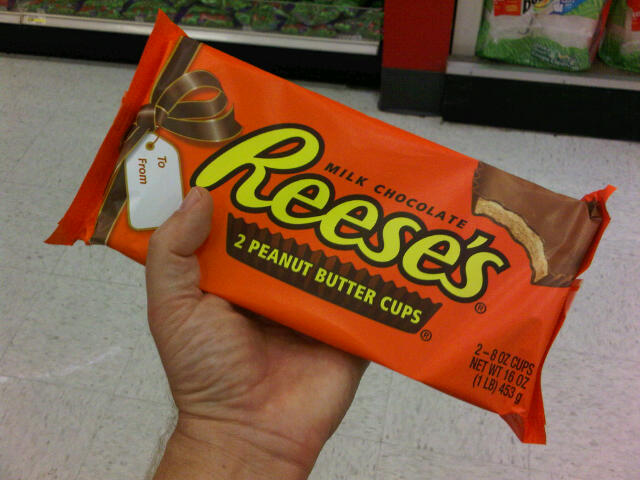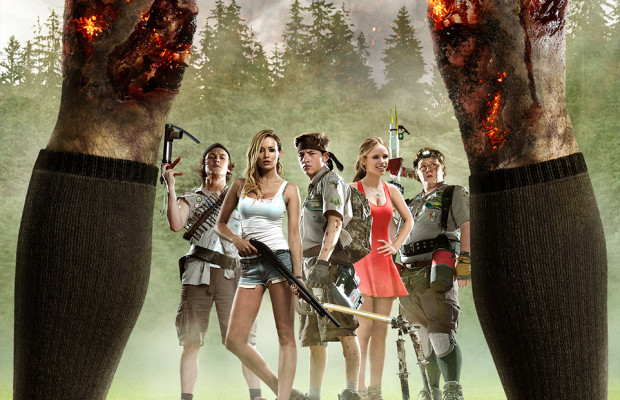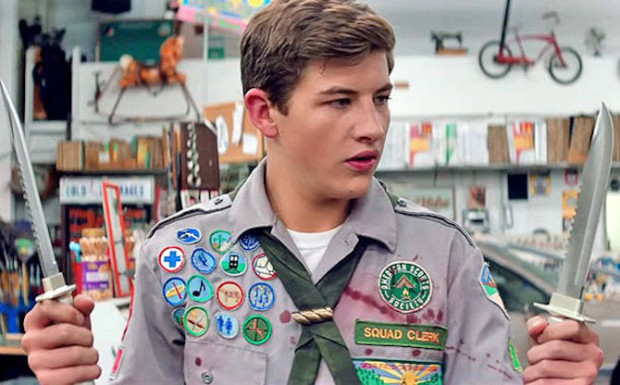Search Results for: scriptshadow 250
Genre: TV Pilot – Sitcom
Premise: A 30-something writer for an outdoors magazine suffers an injury that forces him to work back at the company offices, where the magazine is run by a bunch of delicate millennials with zero outdoors experience.
About: This is a new sitcom coming to CBS which snagged the most in-demand comedy talent on the 2016 market in Community star Joel McHale. McHale will be joined by McLovin who is mclovin the fact that he’s finally got a job.
Writer/Creator: Mike Gibbons
Details: 46 pages
As those of you who follow me on Twitter know, Joel McHale and I are workout buddies. And by workout buddies I mean we work out at the same gym (Gold’s Hollywood if anyone wants to join us) and occasionally use machines that are in close proximity to one another.
Okay, if we’re being totally honest, this proximity thing has only happened a couple of times. But there was one time when Joel was walking towards me and smiled in such a way that it was either meant for me or the guy behind me. Which it’s fair to say can be counted as a half-smile towards me. Which basically means we’re best friends.
In all seriousness, after a few complaints in the comments section of Pilot Submission Saturday, I felt bad that I didn’t choose a single half-hour comedy. In my defense, I don’t understand the appeal of shows like The Big Bang Theory or Mom. And a lot of that comes from the fact that the half-hour comedy has evolved out of the 3-camera format into something more creative, thanks to shows like The Office, Modern Family, and Community.
So consider today’s a review a test. Because I LOVE the talent involved in today’s pilot. You have my buddy Joel McHale. You have McLovin, who’s so cool that his famous character is just as popular today as it was ten years ago. And you have Mike Gibbons.
Now Gibbons is a name you probably don’t know yet but you should. He’s the head writer on the best late night show on television, the amazing James Corden show (if you haven’t watched it yet, do so tonight. I guarantee it’ll bring a smile to your face).
All of this is a long-winded way of saying if TODAY’S script doesn’t win me over, then no multi-camera sit com is going to do so. Because I love what all these guys bring to the table. So grab your tea-coffee chais and your bacon-maple donuts you hipsters, and join me for a plot breakdown that I pray I’ll like.
35 year-old Joel (yes, the character Joel plays is also named “Joel”) has been forced into a position he promised himself he’d never be in – taking a desk job. It’s not Joel’s fault. He was out climbing the world’s tallest mountain when a bad fall messed up his leg, ending his mountain-climbing career instantly.
To make matters worse, Joel works at an outdoors magazine run by 20-something hipster douches whose idea of mountain climbing is clicking through Yelp reviews of restaurants that are on a hill. In a world where Joel wants to write serious articles about running out of oxygen at 25,000 feet, his hipster cohorts would rather write about the five best mountain-climbing tools to have should the zombie apocalypse arrive.
All the garden-variety sit-com tropes are in place, like the female lead whose only job it is to inject sexual tension into each episode. Oh, and let’s not forget the token black friend who lets our hero stay at his place while he gets back on his feet (except for the days when he’s Air BnB’ing his house!).
Despite the fact that when you take the ‘i’ out of ‘pilot’ you’re left with ‘plot,’ I couldn’t find anything resembling such a thing in this episode. There may have been a magazine-wide pitch due at the end of the show but you’d be hard pressed to point out where they set this up.
In the end, despite Joel hating his new job, he decides to give it a shot because if he doesn’t there wouldn’t be a show. Which, to be honest, probably would’ve been better for his career. I know that CBS is the only network that still understands the classic sit-com format. But I’d be surprised if even they could make this one work.
One of the terrible things about sit-coms is that when they’re bad, theyre realllllly bad. As in they go south faster than a Irish woman on St. Patty’s day. Something about the fact that you’re hearing laughter when things are so clearly unfunny makes how not-funny they are even more noticeable.
Did you ever watch that awful Sean Hayes sitcom from a year ago? And how bout that Mark Paul Gossler sitcom about married life that came and went faster than a Sascha Baron Cohen opening weekend? The Great Indoors feels like a combination of those two shows.
And it’s driving me crazy trying to figure out why my workout buddy agreed to do this. This is a man who participated in one of the most edgy comedies of the last half-decade. And now he’s doing traditional sit-coms?? That’s like racking a three-plate bench press then going to the warm-up area to do push-ups.
There was only one joke in the entire script that I hadn’t seen before, and that’s when Joel had to go to HR for making a millennial cry. Laughter had become such a foreign concept during this read, that I immediately felt guilty for doing so, sort of like I’d just giggled at a crippled man who’d fallen out of his wheelchair.
A big reason for the lack of laughter came from how lame these characters were. One of the things I always push upon writers is that you want to create three-dimensional characters. These characters were the antithesis of this. They were one-dimensional to the core. As in you pick one trait per character and hit on it over and over and over again until you want to stick your forehead in a 1920s printing press.
And look, one of my favorite shows ever was Seinfeld. Those characters were pretty one-dimensional themselves. But at least that show was trying to do something different! It didn’t follow the traditional sit-com format. It centered on the minutia of everyday life. This meant that at least one aspect of the show was taking us into unfamiliar territory.
The Great Indoors is a premise lost in its 1950s treatment of the format. Which is ironic because it’s supposed to be about this new generation of hipsters who are changing the work game.
I mean, shit, The Intern covered millennials 100 times better than this, giving each of its characters multiple traits (Adam Devine’s character wasn’t just the clueless millennial who spent all day on Facebook, but also a good friend to Robert DeNiro who helped him feel at home at the company). When you’re getting beat out by Nancy Meyers for character depth, you may want to reevaluate your teleplay.
I don’t get it guys. Why isn’t this format extinct? Everything about it is played out. And outside of the premise itself, there isn’t a single thing that’s new here. Wake me up when this format disappears.
[ ] what the hell did I just read?
[x] wasn’t for me
[ ] worth the read
[ ] impressive
[ ] genius
What I learned: I’ll qualify this by saying I’m not an expert on sitcoms, but I’ve always found that no matter WHAT you’re writing, it works best when you come up with a story first, then squeeze your setup in around that. Scripts are much less successful when you focus on setting up your world first, then try to squeeze in a story around that. The Great Indoors does the latter, leaving everything feeling forced, exposition-heavy, and worst of all, not very entertaining.
Genre: Contained Thriller
Premise: When a young woman wakes up in the fortified cellar of a man’s farm house, she must figure out if the mysterious reason why he says she’s there is true or not.
About: This was just a regular spec script until JJ Abrams’ company, Bad Robot, decided to adapt it into the next chapter of the Cloverfield franchise. How “Cloverfield-y” it will be is up for debate. And since this is the original 2012 draft, before the changes were made, we won’t know for sure until the movie arrives. However, based on the recent trailer, I can confirm that a ton of it is similar. It will just somehow tie into that giant monster who destroyed New York City. Newcomers Josh Campbell and Matt Stuecken wrote the script. It’s been said that Whiplash writer-director Damian Chezelle helped with the rewrite. I wonder if that means there will be a dance number?
Writers: Josh Campbell & Matt Stuecken
Details: 95 pages (April 11, 2012 draft)
For those of you bemoaning the fact that your movie choices this weekend were limited to either Ride Along 2 or Michael Bay’s attempt at being serious, rejoice in the fact that big Hollywood movies are coming sooner than you think. Deadpool comes out in the traditionally dead month of February. Batman vs. Superman is here in March. And just last week we learned we were getting a new Cloverfield movie, also debuting in March.
While JJ has shied away from the mystery box as of late, due to the internet repackaging his box into some kind of movie-killer, he did dig back into his bag of tricks with the release of this trailer, surprising everyone last week with the news they’d getting another Cloverfield. So how good is the script that inspired this semi-sequel? No mystery box on that one. It’s very good.
18 year-old Michelle Burke has just woken up in a small room in her underwear with no idea how she got there. No sooner is she putting the pieces together than a 40-something man, Howard Stammler (what a great character name!) walks in with food. She attacks him, but he’s too big for her. And what he tells her next is so shocking, it turns her world upside-down.
He’s not here to hurt Michelle. He’s here to help her. According to Howard, some huge attack just went down. All of the cities have been blown to bits, and there’s some sort of radioactive chemical in the air that’s killing everyone. As this was all going down, Howard spotted Michelle unconscious in her crashed vehicle on the side of the road. He couldn’t let her die there, so he took her with him.
Howard, it turns out, is one of these preppers, weirdoes who have a full service survival cellar in case the end of the world happens. And because of his weirdo-ness, he’s saved both himself and Michelle. That is, of course, if he’s telling the truth, which Michelle is pretty sure he isn’t.
But she’s stuck in a tough spot. On the 1% chance that he’s telling the truth, if she tries to escape, her skin might dissolve and her eyeballs turn to jelly. And everything Howard tells her has just enough of a ring of truth to it to make her think twice.
Complications arise when a third person crashes the party, Nate. Whereas Howard is old and chubby, Nate is young and, well, sizzling. So when he starts selling Michelle the same story, she’s more inclined to believe him. Making things even weirder, Howard and Nate know each other. But something happened between them that’s soured the relationship.
Is this really happening? Or could Michelle be the victim of some weird fucking game? Every time she thinks she’s figured it out, something new pops up to cast doubt again. This is what helps keep The Cellar a mystery until the very last page.
Arnold Schwarzenegger used to be the best bodybuilder in the world. And if you hear him talk about that time of his life, he keeps going back to one principle over and over again: You have to shock the muscles.
He says, “When I go to the gym and I’m about to work out, my muscles already know what I’m going to do. They’re already saying to me, ‘I know you’re going to go do 3 sets of 250 pound bench presses. Then you’re going to move over to the dumbbell rack and do 3 sets of 70 pound curls. Then you’re going to come back to the bench and do 4 sets of 200 pound incline presses.”
And Arnold’s whole philosophy was, “You think I’m going to do this? You’re wrong. I’m going to shock you. Today, I’m going to start out with THREE HUNDRED and fifty pound bench presses. Then instead of doing my usual bicep curls, I’m going to do pull-ups…” By shocking the muscles, Arnold argues, they have no option but to grow.
Readers are a lot like muscles. They know your routine already. And they’re used to it. So all the tricks you’ve learned along the way? They’ve seen them. And the only way to make a reader sit up and pay attention (grow), is to shock them. And by that I don’t mean some giant shocking plot twist. And I don’t mean a jump scare. I mean show them something unexpected. And preferably, do it right away, so that the reader immediately knows that this is a writer who’s going to go about the routine differently.
I’ve read so many of these contained cellar/bunker/basement scripts by now, I can’t keep track of them anymore. So I know what’s coming almost all the time. There are only so many ways you can spin this situation. Or at least I thought. The Cellar has me rethinking that belief.
Right away, we have this girl in a room. And she wakes up. And there’s a 40 year-old man. And he’s creepy-looking. And I’m thinking to myself, “Okay, here we go. Been down this road before.” But immediately, the man says something I wasn’t prepared for. As the woman attacks him, he doesn’t fight back. He holds up his hands in defense and tells her, “I’m here to help you.”
Those words completely threw me off. Help her??? Huh? How can a man holding a woman prisoner be helping her? And it was that moment I knew this script would be different.
I’ll give you another example. Later in the script, the third guy shows up, Nate. Again, I’ve been down this road before. It’s really one of the only things you can do in these contained movies – is add that mysterious 3rd character who shows up around the midpoint. It adds a new dimension to the story and keeps it from getting stale.
But almost all the time, the character is weak. He’s not there as a real person, but rather as a desperate plot device to keep things interesting. Writers will ride the mystery of this character as long as they can until they have to explain him. And when they do explain him, it’s always boring and obvious.
When Nate comes in though, Howard looks at him and seems upset. There was a history between these men. Something had happened between them. And that totally threw me again. In the past, these characters have always been complete unknowns. The fact that these two knew each other opened up this whole new avenue to explore in a contained thriller. How did they know each other? Why didn’t Howard like him? How is this going to affect Michelle?
Another thing these writers do well is that they use backstory to ADD to the story as opposed to just provide context.
One of the huge mistakes beginner screenwriters make is they include backstory (characters talking about their past, or worse, flashbacks) to provide context for their characters. A character will go on a rant about how when he was in high school, he was an outcast, and it’s like, “Who cares??” Backstory works best when it CHANGES THE DYNAMICS OF THE CURRENT STORY.
So here, for example, when Nate comes in, he tells Michelle in confidence that Howard’s wife was murdered. The police never solved who did it, but there was a lot of speculation that it was Howard. So you see that we have this backstory on Howard now (his wife was murdered) that changes the dynamic of the present. We’re now more suspicious of Howard. If he killed his wife, who’s to say he won’t kill them? That’s what good backstory revelations do.
The same thing happens again with Howard’s daughter. Before Nate shows up, Howard tells Michelle a story about his daughter. But later, when Nate comes, he tells her Howard doesn’t have a daughter. And so, again, backstory is being used to affect present story.
I’m not surprised at all that this caught Bad Robot’s attention. These writers took a potentially cliché setup and turned it into something really fresh and fun.
[ ] what the hell did I just read?
[ ] wasn’t for me
[ ] worth the read
[x] impressive
[ ] genius
What I learned: One of the ways to find a new way into an old story is to shift the default character dynamic. So if you look at the “Man keeps woman prisoner” scenario, ask yourself how you could change that. Maybe the man is actually helping the woman. This creates a whole new movie. The Die Hard setup. Man must shut down a group of terrorists who have taken over a building/boat/airport. What if you found a way to make the terrorist the one who had to save the day? Change the dynamic and you have an entirely new story.
What you see above? That is all I want for Christmas. I’m serious. If you want to thank me for any help on the screenwriting front, bless me with that sugar parade. That is all the thanks I need. I just want to mash that thing in my face. Like rub the chocolate all over my forehead and then stuff it in my mouth. Then wrap the second cup up and hide it like a squirrel for later. Wait until the family is asleep and then sneak in another face-mashing session. Okay, now this is just getting weird. But the 2 pound reeses is not weird. It is wonderful. And I wish a merry Christmas to whomever eats one. Or two. Or three.
Title: Weep, Crave, Loathe
Genre: Comedy
Logline: Three socially impaired women, who think they have superpowers during PMS, believe they must find the remedy to menopause or risk losing their powers forever.
Why You Should Read: This is my attempt at a superhero script where there are no actual superpowers. It’s just three women who make some questionable choices because of issues with self-perception. It’s meant to be farcical fun so the humor tends towards sophomoric and crude. Curious what you think.
Thanks ahead of time if you take a look.
Title: Throw Away Love
Genre: Thriller
Logline: A disillusioned trophy wife has an affair with a photographer, unaware that he’s a serial killer.
Why You Should Read: I refined the logline in the comments section during the Thanksgiving Holiday. I got great feedback and now I’m hoping to get some more great feedback on the rest of the script. This script takes inspiration from films like “Body Heat”, “Unfaithful”, “Blood Simple”, and “Fatal Attraction”. I decided to write a Thriller because it’s a sell-able genre. “Throw Away Love” is the first script I’ve written since discovering Scriptshadow. From the initial idea, all the way to this current draft, I’ve made a concentrated effort to incorporate many of the tips from this site. I’m really excited to see how I’ve grown as a writer since discovering this site and its community.
Title: Recon
Genre: Action/Sci-fi
Logline: An Alien invasion seen through the eyes and the perspective of an Alien soldier. [Cloverfield meets Independence Day]
Why You Should Read: Well, if I won the lottery tomorrow, I’d spend the majority of the day splurging on a bunch’a nonsense that I’ve always dreamed of having… and then come home and type “FADE IN”. So yes, my name is Landon Collins and I’m an aspiring scribe [“Hiiii, Landon”]. Twice placed in the Nicholl Fellowships including 2015 as a Quarterfinalist. “RECON” is not my Nicholl script, but instead, it’s my latest script that’s been toiling in the back of my mind for about 5 years, and I just now gathered the testicular fortitude to hash it out this year. Not since my first couple of scripts a decade ago have I had as much fun writing and I hope you have at least half as much fun reading it.
Title: For Your Eyes Only
Genre: Espionage thriller
Logline: James Bond undertakes an unofficial mission of revenge in the first true adaptation of Ian Fleming’s story since it entered the public domain
Why You Should Read: I’m sending this script in response to your recent post (Increase Your Chances of Selling a Screenplay 100-fold). The public domain is fascinating, if tricky, place to play, with opportunities and potholes in equal measure. I’m hoping to get through without breaking an axel. In short: on January 1, 2015, Ian Fleming’s James Bond novels entered the public domain in Canada (and in numerous other territories worldwide, including the mega-market of China). I saw an opportunity, and wrote a feature screenplay based on Fleming’s short story For Your Eyes Only. The script presents a fully realized James Bond (no, it’s not another origin story, because who needs that?) at a crucial turning point in his life and follows him through an adventure that sets up a proposed four-film series — along with a potential spin-off series and cross-media tie-in content, both adapted and original. So yes, I’m thinking big here. — I think this could be an interesting case-in-point for your argument (or a cautionary tale, depending on how things work out). I had to contend with exactly what you describe in your article: how to tell a familiar story in a fresh way; how to breath new life into a character everyone knows; how to simultaneously meet and thwart expectations. Even if it never gets produced, this was one of the most educational screenplays I’ve ever written. (I have six produce features under my belt thus far, all very indie; this, if it got made, would be a whole new phase of my career.) — I’m pretty happy with the script now, but I don’t bruise easily, so I’m open for some honest criticism. (Btw, my choice for Bond: Cillian Murphy.)
Carson, you made a mistake.
You passed over this script for the 250. I understand these things happen, but lemme help correct that and show you my chops.
I’m a Chicago man like yourself and you picked my twin brother’s script for the 250 and amateur offerings and now he has a big head and is giving me shit. Among brothers, this cannot stand.
Here’s my submission:
Title: Team Deathmatch
Genre: Comedy
Logline: When a crusty workaholic gets canned for an office meltdown, he must work together with his burnout son to win a million dollar video game competition and save their house from foreclosure.
Why You Should Read:
Because I wanna make you feel good.
Yeah…
That’s right.
But sadly, I can’t touch you. So let my script touch you… in the best way possible… and make you feel good.
E-sports (video games in non-douchey terms) is an untapped subculture ripe for parody. And these people go to the movies for R-rated comedies. Nice.
On top of that… day jobs can suck. So who can’t get behind a protagonist leaving his/her work-a-day life for a shot rarified glory, financial security, and more time with his/her family? That’s what this story is about.
But don’t all movies remotely tied to video games end up as catastrophic failures? Well… yeah. But this ain’t them. NOBODY has approached the video game subculture from this angle. Games, particularly ‘e-sports’, are GROWING in popularity. They aren’t going away and somebody’s gonna get it right. Eventually. Maybe now?
So spend some time with me, yeah? I’ll make it worth your while.
Genre: Musical
Premise: An aspiring musician and an aspiring actress meet and fall in love in LA, only to find that life is rooting against them ending up together.
About: Damien Chazelle is a force to be reckoned with. After landing one of the hottest young actors in Hollywood, Miles Teller, for his previous film, Whiplash, the director secured an Oscar for Teller’s co-star in the film, J.K. Simmons (little-known fact – Simmons has shot 32 films and TV shows since 2014’s Whiplash). Whiplash may not have wowed the masses (it only made 13 million at the box office), but once you win an Oscar for an actor? EVERY ACTOR wants to work with you. Which is how the 30 year-old Chazelle has found himself directing two of the biggest stars in the world for La La Land, Ryan Gosling and Emma Stone.
Writer: Damien Chazelle
Details: 95 pages
Reading a writer-director draft of a musical without any lyrics is sort of like looking at an architect’s notes for his next house. “I want a round window in the bathroom.” “Still wondering if we should open up the living room area.”
Since the director’s writing for himself rather than the reader, you feel a bit like an outsider looking in, trying to decipher what the hell this guy thinks he’s doing. With that said, Quentin Tarantino writes some of the best scripts in the business. So it’s not like it can’t be done. Where it gets complicated with La La Land is that we’re missing out on the make-or-break aspect of the movie – the musical numbers. Say what you will about the power of screenwriting, but there’s no way to convey how a song and dance will feel until you see it on the big screen. The written word cannot compare to music.
Now some of you might ask, “Well then why even review the script?”
Good question. It’s because what’s left is pure story. Stripped of all its bells and whistles, La La Land is pure character and plot. And I’m curious to see if those characters and that plot worked.
Sebastian is a 28 year-old Thelonious Monk wannabe, a guy from another era who shuns the catapult-to-Youtube-fame the current system celebrates. Sebastian wants to suffer for his art in order to find that inspiration to create the kind of greatness Monk used to create on a nightly basis.
27 year-old Mia is also from a bygone era, the kind of girl who will quote Ingrid Bergman over Kim Kardashian, and is trying to use that energy to break into the toughest business in the world – ACTING.
After a failed one-night stand, Mia finds herself looking for a way home, only to drift into a dark club playing some of the most beautiful piano music this side of Sam from Casablanca. And what do you know? It’s Sebastian playing the tune.
The two don’t get along at first, but soon find mutual respect in their unique approaches to their craft. Within a few weeks, they move in together. From there, Mia focuses on writing a one-woman play to raise her acting profile. And she encourages Sebastian to branch out from being the James Dean of jazz and join a band, even if their music is more pop-centric than he’s used to.
That band ends up becoming bigger than expected, and soon women are throwing themselves at Sebastian after his bring-the-house-down solos. Mia begins to wonder, “What have I done?” This leads to friction in the relationship, which leads to them breaking up, and us wondering if they’ll ever get back together.
Oh yeah, and musical numbers are interspersed throughout all of this. The opening scene is probably the best, a giant number on a carmageddon highway with every driver getting out and singing their frustrations. As the movie goes on though, the numbers become more intimate, focusing on Sebastian and Mia’s love.
Here’s the big question with La La Land, though: Is this the next Once? Or is it the next Begin Again?
So yesterday we were talking about voice. Voice consists of the way you see the world based on your life experiences up until this point. Say for instance, two different writers are writing a funeral scene. One of those writers may focus on the faces of the crying family as their loved one is lowered into the ground. The other writer may focus on the beauty of the moment – the way the sunlight hits the tombstone or the way the wife leans down to kiss her infant son. A third writer may find humor in the moment. The drunk priest stumbling over his words or the coffin unexpectedly dropping and slamming into the grave.
How different people see different things is how voice is expressed. And sadly, I don’t line up with Chazelle’s voice. I don’t know what it is but there’s a disconnect somewhere. He went to music school. I went to fuck-around school. I felt it with Grand Piano. I felt it with Whiplash. And I feel it here.
My biggest problem with La La Land is that it all feels so cliché. The pretentious angst-ridden musician who’s too good for pop music. The eager young actress who’s so hip she likes Audrey Hepburn and Janet Leigh over Jennifer Lawrence and Emma Stone.
And when these two hang out, they go to all the well-known places in LA. The Griffith Observatory. The La Brea Tar Pits. The Getty Center. Ironically, it may be me who’s the problem here, as I live here and know these places well. The rest of the world, likely, does not. But still. It always felt to me like Chazelle wasn’t digging deep enough. He always seemed a minute away from setting a scene at Mann’s Chinese Theater.
It looks like he’s banking on the musical element being the “originality” aspect that makes up for all the rest of the unoriginality. And maybe that will be true. We do get a zero-gravity dance number at the Griffith Observatory so it’s not like it’s pure cliché.
But I kept waiting to care about these two and it never happened. Sebastian is self-absorbed. Mia’s SO obvious with her “I only like old actresses” vibe. And it’s safe to say that if I don’t like your male lead and I don’t like your female lead, then I sure as hell don’t care if they get together or not. And since this movie is predicated on us caring about these two getting together, La La Land felt more to me like Hannah Montana than Adele.
In the end, La La Land feels like a movie from someone who’s lived in LA for six months and is basing his story on the surface level version of the city he’s experienced during that time. Los Angeles is actually much deeper and more complex than it’s being made out to be here, and when you couple that with two empty lead characters, the musical numbers are going to have to be off the charts to save this film.
[ ] what the hell did I just read?
[x] wasn’t for me
[ ] worth the read
[ ] impressive
[ ] genius
What I learned: The 20-something character who idolizes famous dead actors/musicians is a trope that’s been used so much in film that I’d think long and hard before including it in your own screenplay.
What I learned 2: I don’t think this script had a single surprise (outside of Sebastian’s harsh rejection of Mia’s initial advance). Everything was too perfect, too predictable. You HAVE to surprise your reader/audience to keep them on their toes.
Genre: Horror-Comedy
Premise: (from IMDB) Three scouts, on the eve of their last camp-out, discover the true meaning of friendship when they attempt to save their town from a zombie outbreak.
About: This script somehow made the 2010 Black List. It has steadily moved through the system, securing actor Tye Sheridan (Mud) and director Christopher Landon (Paranormal Activity: Marked Ones). It was written by comedy team Emi Mochizuki and Carrie Lee Wilson, whose only previous credit was the 2008 Martin Lawrence film, College Road Trip. The movie hits theaters later this fall.
Writers: Emi Mochizuki and Carrie Lee Wilson (the production draft you see in theaters was rewritten by Christopher Landon and Lona Williams).
Details: 114 pages (2010 draft that made the Black List)
Boy Scouts Vs. Zombies was one of the last of the zombie wave of scripts to sell back in 2010. You have to remember that this was during a time where a script titled “Zombie Baby” sold. A 2010 zombie spec was the equivalent of a lottery ticket. It was the trend that wouldn’t stop trending, kind of like biopics today.
Still, this specific sale has always baffled me. There’s nothing inherently clever or ironic about the premise. It’s so arbitrary, it’s as if they picked a random group of people, said, “Let’s pit them against zombies,” and that was it.
It’s no different from “Clowns vs. Zombies,” or “Politicians vs. Zombies,” or “Skaters vs. Zombies.” There’s no clear connective tissue between this group and the undead.
“Grocery Store Employees vs. Zombies!”
Yet still they managed to get one of the hottest young actors in Hollywood to join the film. What’s up with that?? I mean this guy was in Mud and Tree of Life. Was his agent high when he read this? “Okay Tye, you’ve worked on some pretty impressive stuff so far. But I found something can’t-miss. Are you ready for this? Boy Scouts. Vs. Zombies. Waddaya say?”
All of this supports my belief that the way things get made in this town is passion. This is the furthest thing from a quality project, yet clearly, somebody believed in it and put all of their effort into pushing it through the system. If you want to know why bad movies get made, this is why. Bull-headed producers who stop at nothing to get that theatrical release.
The “plot” to Boy Scouts vs. Zombies has our core crew of boy scouts, each 14 (there are 14 year-old boy scouts??), heading to the island of Playa Del Amor to engage in some weekend boy scout tomfoolery.
There’s Dylan, the cool one, Matt, the proud one, Lloyd, the geeky one, and then a few other human versions of Swiss army knives. The group is led by asshole assistant scout leader, Scott, and “takes this way too seriously” scout leader, Gary.
Little does the group know that on Playa del Amor, there’s a hidden research facility, and that some guy who works there named Carlos just got infected with the zombie virus. Carlos is able to escape from the facility, where he then mauls a few campers.
“Lawyers vs. Zombies!”
As Dylan, Matt, and Lloyd finalize plans to invade a high school house party (I guess there’s a high school on this island??), their plans are interrupted when some local islanders try to, well, eat them.
Unlike most zombie movies where the main characters don’t know what zombies are, our group is well-versed in zombie lore and know that they must get the hell off of this island or embrace an afterlife of animated rotting flesh. Unfortunately, they have to rescue some girl scouts first, and that’s where everything falls apart.
Boy Scouts vs. Zombies lies somewhere between Goonies and Piranha 3D. It wants that pure B-movie wackiness of Piranha, with a bit of the “kids in danger” heart that drove Goonies. And that’s its problem. Because it tries to be both, it does neither well, and what’s left is its surface-level infatuation with introducing zany zombies.
For example, someone gets bitten inside one of those blow-up sumo suits and becomes “sumo zombie.” And hey, that’s a fun idea, sure. But if all you’re doing with your zombie film is trying to come up with fun zombies, you’ve failed. I’m sorry, but you’ve failed big time.
Screenplays are supposed to be about characters. Connect us with the characters by making them relatable, by giving them flaws we can identify with, and then create problematic relationships (which are also relatable) that need to be resolved. Even if you only achieve the bare essence of this, you’ll probably make us care.
We don’t get that here. There’s a half-assed storyline where Matt is going to private school, leaving his best friend Lloyd all alone, but you get the feeling that the writers cared about that relationship 1/10th as much as they cared about sumo zombie.
And make no mistake. The audience feels that. They feel when you don’t give a shit about your characters.
“Pizza Workers vs. Zombies!”
Speaking of characters, there’s something that’ll happen when I read a script that’s a dead giveaway that I’m reading a bad writer.
As any script reader will tell you, sometimes you forget a character. Maybe their intro sucked. Maybe there were too many characters being introduced together and they got lost in the mix. Whatever the case, I can’t remember the character when his name is brought up again, which leaves me scrambling to figure out who they are.
Now if you’re a good writer, your character will speak and act in a way that’s so unique to them, that I’m able to pick up who the character is without having to go back and re-read the intro. This is ESPECIALLY true with comedy, where characters are exaggerated.
There’s a character named “Jim” here, who’s apparently a main character, whose introduction I missed. Every time he showed up in a scene, I’d try to remember who he was. But because his dialogue and his actions were so generic – because there wasn’t anything unique about what he did or said (or how he said it), I never knew who he was. He was a bland blob for all I knew.
This is important. Your character intro should not be the sole thing conveying who your character is. He/she must continue to act/speak in a unique enough manner that we’re able to identify them regardless of their introduction. In fact, we shouldn’t even have to see their name to know who they are.
“Truck Drivers vs. Zombies!”
Take a script like The Hangover. If you missed Stu or Alan or Phil’s intro, you still would’ve known who those characters were based on their words and their actions. Alan with his complete lack of social awareness, Stu because of how freaked out and OCD he was. Even the blandest of the three, Phil, was a narcissistic asshole who just wanted to have a good time, and that was evident every time he spoke.
You barely see any of that here.
And the script doesn’t even do a good job in the one area it cares about – the funny. There’s one memorable scene, when the group is attacked by a bunch of zombie bunnies. But other than that, it’s sumo zombies, bikini-girl zombies, and Chuck Norris jokes (yes, the second lowest joke on the joke totem pole, right above a fart).
In the end, I think this boils down to a flawed premise. Why a zombie movie about boy scouts? It’s too random – the kind of logline that wouldn’t have even made the Top 250 of my contest. Where’s the clever? Where’s the irony? I’ll be honest. I’m baffled this script was A) picked up and B) made. This freaking movie is getting a theatrical release! Can someone explain this to me??
[ ] what the hell did I just read?
[x] wasn’t for me
[ ] worth the read
[ ] impressive
[ ] genius
What I learned: Let’s say a law was passed that prevented you from writing traditional introductions to your characters (“JOE, 20, is a space-cadet with a penchant for pinball”). Would your characters still be identifiable based on their actions and their words? If not – if you NEED your character introduction to do all the work for you – it means you’re not focusing hard enough on expressing your character through action and dialogue.
“Dog Walkers vs. Zombies!”


